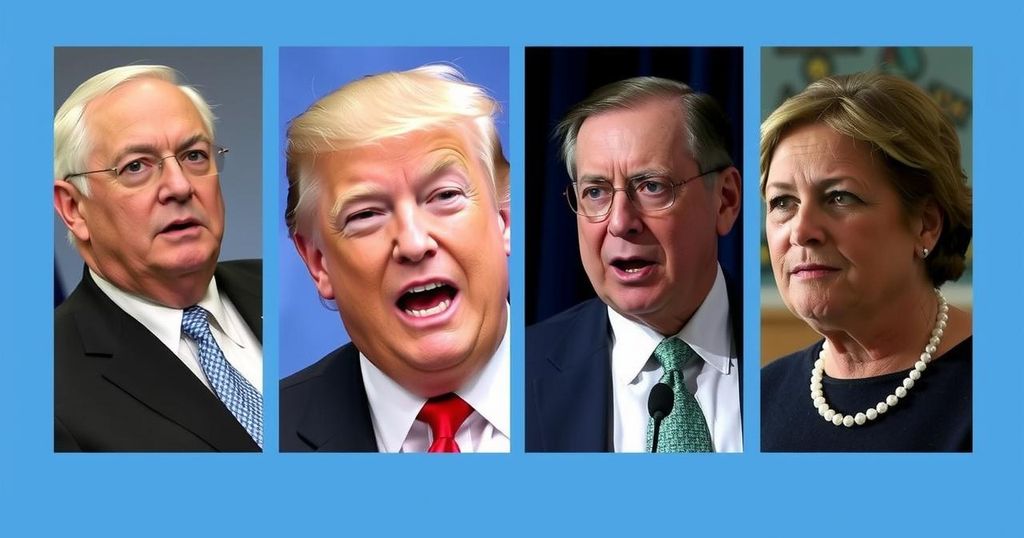Democratic Governors Shift from Opposition to Collaboration with Trump

Democratic governors are shifting from adversarial rhetoric towards President-elect Donald Trump to a more collaborative approach, seeking common ground on issues while remaining vigilant against potential policy threats. Their strategies vary, with some expressing willingness to work with Trump, particularly on infrastructure, while others maintain combative positions against his administration. This evolution showcases the complexities of party dynamics in the current political climate.
In the wake of the election, a number of prominent Democratic governors are recalibrating their approaches towards President-elect Donald Trump in hopes of fostering a collaborative relationship with his administration. Previously vocal in their opposition, these governors are now weighing their party’s inclination to engage in early confrontations against Trump’s policies against the need for practical cooperation. For instance, New Jersey’s Governor Phil Murphy expressed the delicate balance of defending his community’s values while seeking common ground on mutually beneficial issues such as infrastructure funding.
New York’s Governor Kathy Hochul has exhibited a similar dual approach, preparing to oppose Trump on reproductive rights while simultaneously expressing optimism regarding collaboration on infrastructure priorities. She acknowledged their discussions following the election, stating, “There are areas where we can work together, like infrastructure where we rely on federal money.”
Conversely, California’s Governor Gavin Newsom has continued to adopt a more confrontational stance, emphasizing the necessity of financially reinforcing the state’s legal framework to withstand the anticipated challenges posed by Trump’s policies. Meanwhile, Illinois Governor J.B. Pritzker and Colorado Governor Jared Polis have united in forming the “Governors Safeguarding Democracy” group, aimed at upholding democratic institutions amidst potential policy shifts under Trump’s leadership.
Governors have nevertheless displayed varying degrees of willingness to collaborate with the new administration, as Massachusetts’ Governor Maura Healey has signaled a potentially less aggressive approach compared to her earlier legal confrontations while serving as Attorney General. Michigan’s Governor Gretchen Whitmer has likewise adopted a more cautious stance, indicating a strategy of patience to gauge how best to engage with Trump’s policy proposals moving forward.
The article examines the shift in strategy among several Democratic governors who have transitioned from vocal opposition to President Donald Trump to pursuing a cooperative relationship with his administration following his election. This change reflects the tension between their party’s political ambitions and the pragmatic need to work together with the newly elected leader to achieve shared goals. Each governor articulates their own approach to balancing resistance against potential threats to their policies while exploring areas of mutual interest.
In conclusion, the Democratic governors are navigating a complex landscape as they work to establish a functional relationship with President-elect Trump following his victory. While some governors remain committed to a confrontational stance, emphasizing legal protections, others are embracing collaboration on issues such as infrastructure development and economic strategies. This balancing act reflects the broader challenges faced by Democratic leaders in aligning their party’s values with the practical necessities of governance in a divided political landscape.
Original Source: mynorthwest.com







